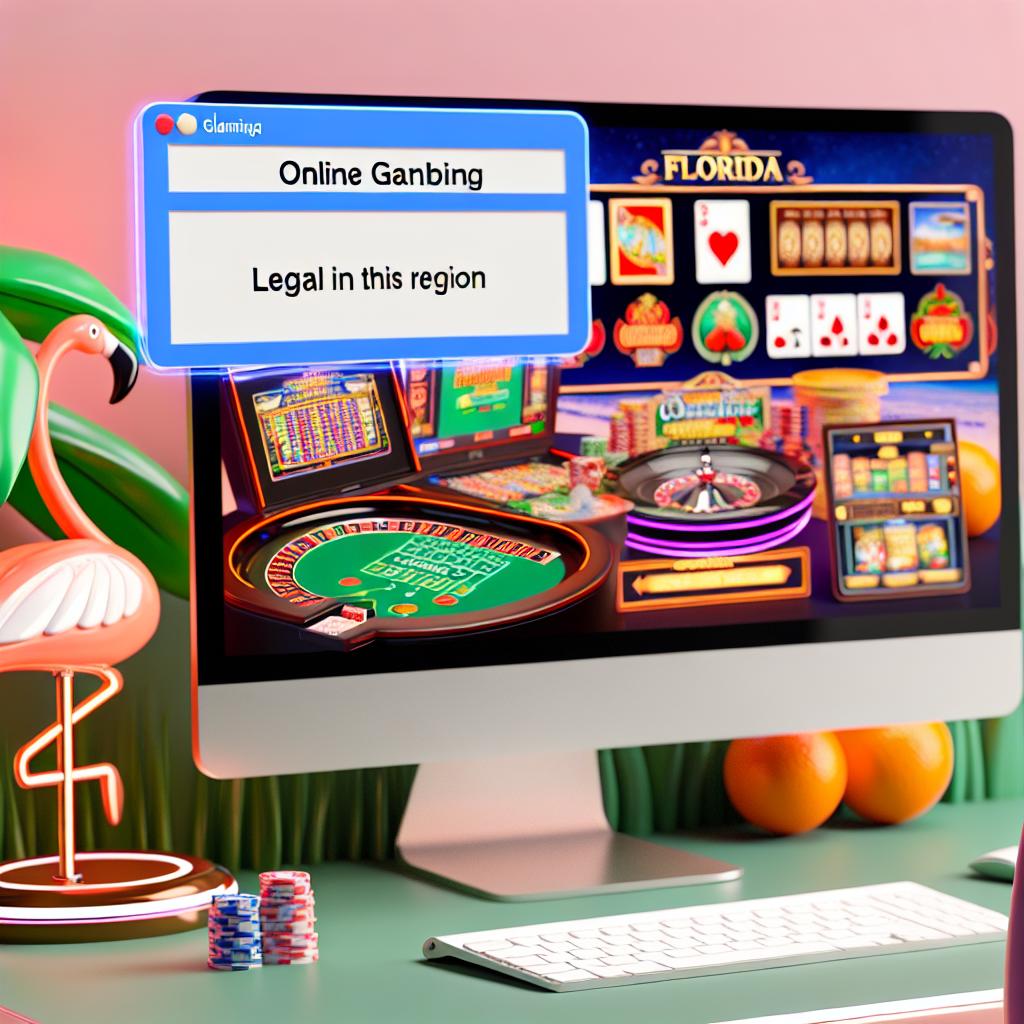
In the state of Florida, the legality of online casinos is quite complex. Understanding the current laws and regulations is essential to ensure compliance and to recognize permissible activities. This comprehensive analysis will delve into the intricacies of Florida’s gambling laws, the interplay between federal and state-level regulations, tribal casinos’ involvement, future legislative prospects, and the risks associated with international online casinos.
Florida offers a diverse range of gambling options, including lottery games, horse racing, and land-based casinos. Nevertheless, the landscape of online gambling is less well-defined, with specific state laws placing various restrictions and provisions on different gambling activities. The ambiguity surrounding online casinos, in particular, makes it important for stakeholders to grasp the current legal framework fully.
The Unlawful Internet Gambling Enforcement Act (UIGEA) of 2006 represents a significant federal regulation impacting online gambling across the United States. This act prohibits certain internet gambling operations, particularly those run by unlicensed entities, to curb illegal gambling activities. However, the UIGEA also empowers individual states to govern online gambling within their jurisdictions.
Despite this federal regulation, Florida has not specifically authorized or licensed any online casinos. This omission has significant implications, as it essentially categorizes online casino operations as illegal unless the state enacts explicit legal authorization. This dual framework creates a scenario where operators and players must navigate both federal and state regulations to stay compliant.
Florida’s approach to gambling is generally prohibitive, meaning gambling activities are illegal unless explicitly authorized by state legislation. This legislative approach acts as a substantial barrier to the establishment and operation of online casinos within the state. As a result, participation in online casino gambling, absent state regulation, could be deemed illegal.
Florida’s legal framework allows certain forms of gambling, such as state lotteries and tribal casinos, evidencing a dichotomous approach towards gambling activities. The focus remains heavily on regulation, and any venture into online casinos must contend with both regulatory compliance and potential legal challenges.
Native American tribal casinos form a notable exception to Florida’s strict gambling regulations. The Seminole Tribe is a prominent example, having been granted the right to operate numerous gambling establishments across the state. These tribal casinos function under compacts with the state, which have historically provided an avenue for more extensive gambling operations.
The prospect of extending these rights to encompass online casinos, however, remains a legally gray area. Currently, there is no established legal framework in Florida allowing tribes to engage in online casino gambling. This uncertainty poses challenges for tribes interested in expanding their digital presence while adhering to existing agreements and state laws.
Recent discussions and initiatives in Florida indicate a growing interest in expanding online gambling opportunities beyond traditional offerings. Proposals have emerged advocating for the introduction of online lotteries and sports betting as part of this expansion effort. While legislative efforts have yet to concretize into policy, these discussions suggest a potential shift towards more inclusive gambling legislation.
The introduction of sports betting legislation in various other states has heightened interest in extending similar discussions to online casinos within Florida. These developments underscore an evolving landscape where stakeholders are increasingly advocating for regulatory changes to accommodate modern gambling practices.
Despite the absence of explicit legalization of online casinos in Florida, many residents choose to access international online casino platforms. These platforms operate under the regulations of foreign jurisdictions and provide a seemingly attractive alternative for gamblers. However, engaging with these services also entails significant risks.
International platforms are not regulated by U.S. federal or Florida state laws, resulting in limited avenues for consumer protection and dispute resolution. Users may face challenges in reclaiming funds or pursuing legal action against these operators, underscoring the importance of exercising caution when considering such platforms.
The current legal stance on online casinos in Florida predominantly leans towards prohibition, complicated further by some ambiguity concerning tribal operations and international platforms. As the legal landscape continues to evolve, individuals considering participation in online casino gambling must remain vigilant and informed about potential regulatory changes. To acquire the most accurate and current information, it is advisable to consult official Florida regulatory bodies or seek expert legal advice.
In summary, the landscape for online casinos in Florida is shaped by a complex interplay of federal regulations, state laws, and emerging discussions about future prospects. Navigating this environment requires an informed understanding of both the legal constraints and emerging opportunities in the gambling sector.